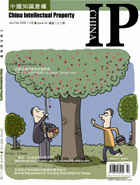
Pursuant to Article 57(2) of China's Patent Law, in patent infringement litigation involving the manufacturing method of a new product, the defendant shall bear the burden of proof. They must establish that their procedure for manufacturing is different from the patented one. This is the inversion principle of burden of proof.
To correctly understand and implement the inversion principle, we must clarify two issues: whether the inversion signifies that the plaintiff assumes no burden of proof and how to deal with the relationship between proof and the protection of a defendant's business secret.
Litigation in China shows that the inversion of burden of proof does not exempt the plaintiff from bearing the burden. On the contrary, the plaintiff is obliged to establish that he owns the patent right, the product manufactured by the defendant is identical to the product obtained through the patented process, and it is a new product.
The criterion for determining a new product is different from the standard of "novelty" required for granting a patent. "Having never appeared in the domestic market" before the date of patent application is the sufficient condition for determining a "new product." In addition, the determination of a new product does not have a high demand for the plaintiff's proof, as long as the patent document has mentioned that it is the manufacturing method of a new product, or there is preliminary evidence in litigation showing that it is a new product which never existed in the market before the application date of the patent.
In litigation, some defendants refuse to prove the method of manufacturing, using the excuse that it is a business secret. A few courts use the same rationale in refusing to provide a defendant;s evidence to the plaintiff allowing for cross-examination. These are all incorrect.
The Supreme People's Court remanded for retrial a case where the legislation on the inversion principle of the burden of proof for process patent was violated. It emphasized in its decision that the rules for burden of proof in the Patent Law and relevant judicial interpretations must be strictly implemented to avoid any misjudgment, and under no circumstances should fairness in judicial proceedings be overlooked. This case plays a guiding role in patent litigation in China. It is an appeal by Eli Lilly and Company (Eli Lilly) and Jiangsu Hansoh Pharmaceutical Co., Ltd. (Hansoh) on process patent infringement. Eli Lilly lodged an appeal on that the court of first instance took the evidence submitted by Hansoh without cross-examination, which is in violation of the Civil Procedure Law and the Patent Law, and Hansoh did not fulfill its burden of proof. After hearing, the Supreme People's Court reversed the first-instance judgment and remanded the case for retrial to the trial court. The court of first instance admitted evidence without cross-examination by both litigants. In addition, it failed to guarantee the appellant Eli Lilly's litigation rights on relevant technological information illustrating that Hansoh's manufacturing method was different from the patented process.
Prior to court hearing, the Supreme People's Court had taken several measures to protect the business secret claimed by the defendant. Firstly, the court limited attendance by holding the hearing in private session. Only a legal representative and two of his entrusted agents, as well as lawyers and transcribers were allowed. In addition, the litigants could engage two expert witnesses for an explanation of technical problems arising in the case. Secondly, it ordered that no litigant should disclose, publicize, or use without authorization from the court trial information, especially the information provided for cross examination. Any violator would be subject to punishment for intentional infringement, or for impairing court hearing. Thirdly the scope of cross examination was gradually expanded with the progress of hearing to cover more of the business secret at the request of the parties.
In conclusion, when bringing an action for patent infringement involving the method of manufacturing of new products, the petitioner should be aware that they bear the burden of proof. Plaintiffs shall not bring an action believing that they are exempt from this duty. Otherwise, they will be placed at a disadvantage during litigation. Defendants may protect their legitimate interests by taking advantage of the ruling by the Supreme People's Court in this case.
About the author:
Li Deshan is a patent agent from the Unitalen Attorney at Law.
(Translated by Hu Xiaoying)
|
Copyright © 2003-2018 China Intellectual Property Magazine,All rights Reserved . www.chinaipmagazine.com 京ICP备09051062号 |
|
|



